ROI of Furnished Apartments in Nairobi for 2025
Discover the 2025 ROI of furnished apartments in Nairobi — rental yields, costs, top areas, and investment tips for serviced units in Kenya.
Introduction
ROI of Furnished Apartments in Nairobi for 2025
Nairobi’s real estate market continues to evolve, and one of the fastest-growing investment options in 2025 is furnished apartments. Investors are increasingly drawn to this segment because of its strong rental demand from expats, corporate clients, and digital nomads.
The ROI of furnished apartments in Nairobi has become a key discussion point for property investors who want higher yields than traditional unfurnished rentals. With the rise of serviced apartments in Kenya, property owners can now tap into both short-term and long-term rental markets for steady returns.
ROI — or Return on Investment — measures how profitable an investment is compared to its total cost. For real estate, this includes purchase price, furnishing, maintenance, and rental income. In 2025, understanding ROI helps Nairobi investors make informed choices and identify high-performing neighbourhoods for maximum returns.
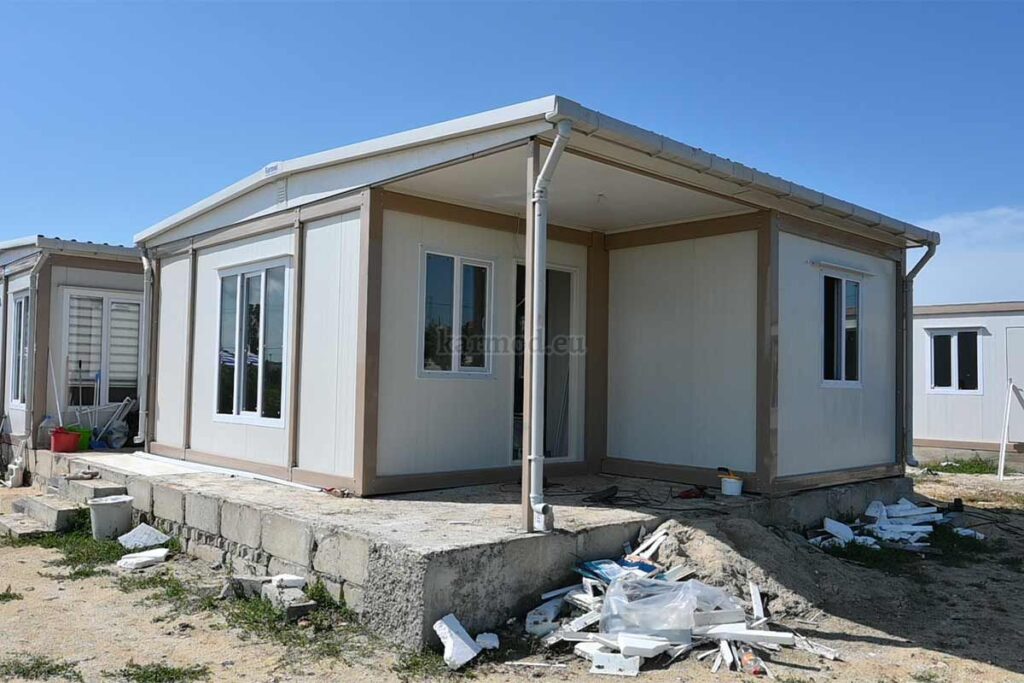
What Are Furnished Apartments and Serviced Apartments in Kenya?
Key differences between furnished and serviced apartments
Furnished apartments in Kenya come fully equipped with household essentials — furniture, appliances, and décor — ready for immediate occupation. They typically cater to tenants staying for months or longer who want a “home-like” experience without buying items.
Serviced apartments, on the other hand, go beyond furnishing. They include additional amenities such as housekeeping, laundry, concierge, and sometimes breakfast or utilities. In Nairobi, serviced apartments are often positioned as premium short-term rentals targeting business and leisure travellers who value convenience.
Both models are profitable, but the ROI of furnished apartments in Nairobi depends on your management style, target market, and operating costs.
Common tenant profiles (corporate clients, expats, tourists)
The demand for furnished and serviced apartments in Nairobi largely comes from corporate clients, expatriates, and tourists. Corporate tenants prefer month-to-month or short leases close to business hubs like Westlands and Upper Hill.
Expats — often diplomats or NGO workers — choose longer stays, valuing security and comfort. Tourists, especially digital nomads, drive short-term demand through Airbnb and other platforms. Understanding these tenant profiles helps investors align furnishing quality and pricing with the right market segment.
Why investors are shifting toward short-term rental models
Many Kenyan property investors are now embracing short-term rental strategies to capture higher yields. Platforms like Airbnb and Booking.com have made it easy to manage bookings, while the return per night is often 30–50% higher than long-term rents.
This flexibility also allows investors to adjust pricing seasonally or cater to both local and international guests. As tourism and corporate travel rebound in 2025, short-term furnished rentals in Nairobi are expected to outperform traditional long-term leases in ROI and occupancy.
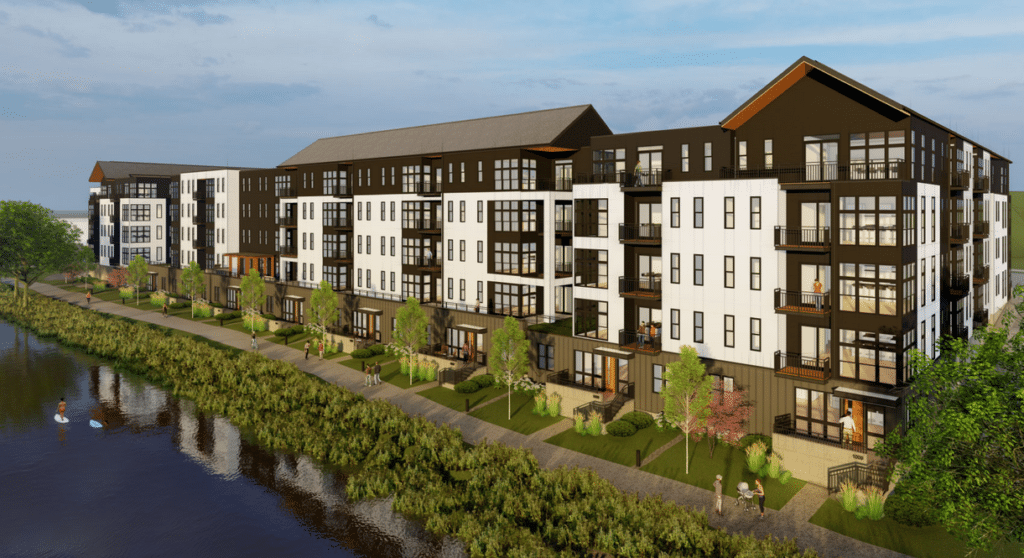
Market Overview — Nairobi’s Furnished Apartment Landscape (2024–2025 Data)
Supply and demand trends in key areas (Westlands, Kilimani, Kileleshwa, Gigiri, Upper Hill)
Nairobi’s furnished apartment market has grown rapidly in the last two years, with supply concentrated in Westlands, Kilimani, Kileleshwa, Gigiri, and Upper Hill. These locations attract working professionals and business travellers due to proximity to offices, embassies, and entertainment hubs.
While new developments continue, demand still outpaces supply in prime areas, especially for quality serviced apartments. As a result, investors focusing on high-demand zones tend to enjoy consistent occupancy and above-average returns.
Average rental yields and occupancy rates (reference Cytonn 2024 data)
According to Cytonn Investments’ 2024 report, the average rental yield for serviced apartments in Nairobi stood at around 7.3%, up from 6.2% in 2023. Occupancy rates ranged between 75% and 83%, with Westlands leading the pack.
These figures show a healthy recovery, driven by returning corporate travel and improved short-stay tourism. In 2025, yields are projected to rise slightly as more investors upgrade interiors and enhance service quality to match demand.
Comparison of serviced vs standard apartment performance
Serviced apartments continue to outperform standard furnished apartments in both yield and occupancy. While a typical furnished unit may bring 6–8% ROI, serviced apartments can achieve 8–10%, depending on location and amenities.
However, higher management costs and frequent maintenance can eat into profits if not well controlled. Investors targeting the ROI of furnished apartments in Nairobi must therefore weigh higher income potential against ongoing expenses.
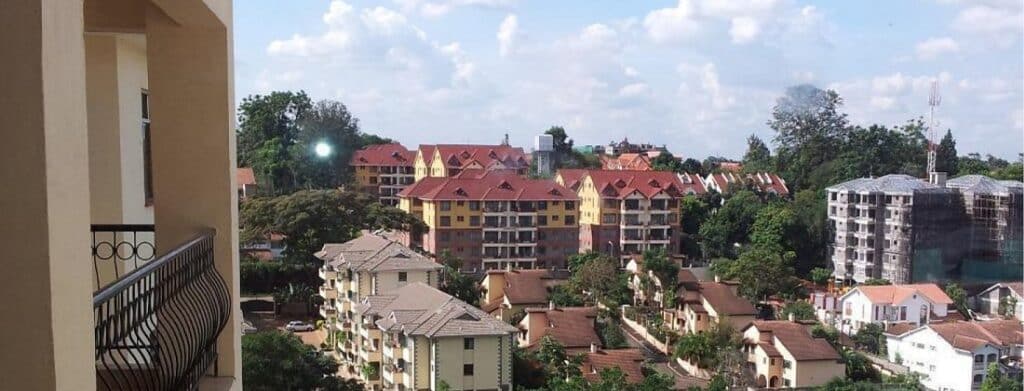
Key pricing tiers and monthly rent ranges
In 2025, pricing varies widely based on size and neighbourhood:
- Studio or 1-bedroom units: KSh 80,000–150,000 per month in Kilimani or Lavington.
- 2-bedroom apartments: KSh 150,000–250,000 in Westlands or Riverside.
- Luxury serviced units: KSh 300,000–500,000+ in Gigiri and Upper Hill.
These ranges show why Nairobi’s furnished apartment ROI remains attractive — investors can achieve premium rents if they balance location, furnishing quality, and pricing strategy.
ROI Breakdown — How to Calculate Returns for Furnished Apartments
Formula for ROI and yield explained in simple steps
Calculating the ROI of furnished apartments in Nairobi helps investors know how profitable their property is compared to its cost. The basic formula is:
ROI = (Annual Net Income ÷ Total Investment Cost) × 100
To find your rental yield, divide your annual rental income by your property purchase price. For example, if a furnished unit brings in KSh 2 million annually and costs KSh 25 million, the yield is 8%. Simple, clear math helps track profitability and compare locations easily.
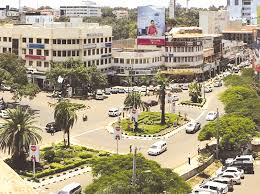
Example calculation — 1-bedroom unit in Westlands or Kilimani
Consider a 1-bedroom furnished apartment in Westlands purchased for KSh 12 million. Furnishing costs KSh 600,000, while monthly rent averages KSh 150,000.
Annual rental income = KSh 1.8 million
Annual expenses (maintenance, service, management) = KSh 400,000
Net income = KSh 1.4 million
ROI = (1.4 million ÷ 12.6 million) × 100 = 11.1%
This example shows that well-furnished units in premium Nairobi areas can deliver double-digit returns when managed effectively.
Adjusting for furnishing cost, management fees, and occupancy
ROI isn’t static — it fluctuates depending on hidden expenses. Investors should factor in furnishing depreciation, management fees (10–20%), and occupancy rates when calculating real profit.
For instance, a 10% drop in occupancy or unexpected repairs can reduce ROI by up to 2–3%. Regular maintenance and responsive management protect your income flow and tenant satisfaction, especially in serviced apartments.
Long-term vs short-term rental models: how ROI differs
Long-term furnished rentals provide stable income but lower returns, typically 6–8% yearly. Short-term rentals through platforms like Airbnb or Booking.com can yield 10–12% or more, depending on occupancy.
However, short-term models need more effort — guest turnover, cleaning, and online marketing. The right choice depends on how active an investor wants to be and how much time they can devote to management.
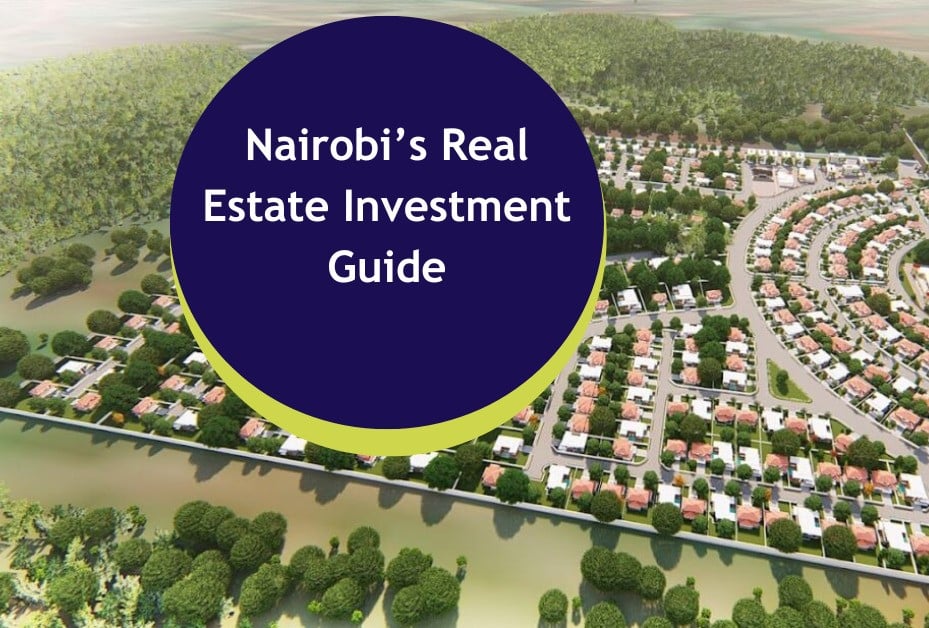
Cost Structure — Investment & Operating Costs in 2025
Purchase cost per sqm and financing trends
In 2025, the average purchase price of a furnished apartment in Nairobi ranges from KSh 150,000 to 250,000 per sqm, depending on area and finish quality. Prime zones like Westlands and Riverside command higher rates due to proximity to offices and malls.
Financing options are improving, with mortgage rates between 12%–14%, and developers offering flexible payment plans. Investors combining financing with rental income can balance costs effectively if they manage occupancy well.
Furnishing costs — furniture, décor, electronics, and interior design
Furnishing is a major upfront expense that shapes tenant appeal. A modern 1-bedroom setup may cost between KSh 400,000 and 800,000, covering furniture, kitchenware, décor, and small electronics.
Quality interior design and durable furniture help maintain value and reduce replacement frequency. Spending wisely upfront often boosts tenant satisfaction and rental rates in the long run.
Servicing/management fees and maintenance expenses
Serviced apartments need constant upkeep — cleaning, laundry, utilities, and repairs. Management firms usually charge 10–20% of monthly income, while maintenance (painting, appliance repair, plumbing) takes another 5–10% annually.
Choosing a transparent management company ensures profitability while keeping guests happy. Professional services also help maintain occupancy through better reviews and tenant retention.
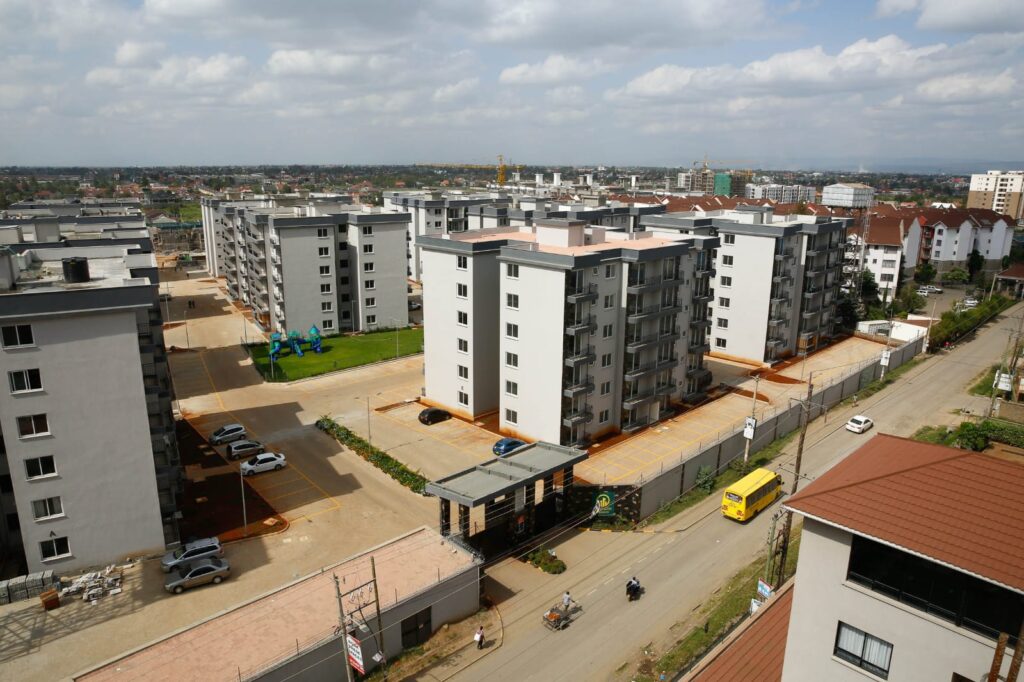
Utilities, insurance, and taxes for furnished rentals
Utilities such as water, electricity, and Wi-Fi typically cost KSh 10,000–25,000 per month. Investors should also budget for property insurance, land rates, and rental income tax (10% withholding).
Understanding these hidden costs keeps ROI realistic and prevents surprise deductions. In Kenya, compliance with tax laws for serviced and short-term rentals also builds credibility with corporate clients.
Key ROI Drivers for Furnished Apartment Investments in Nairobi
Location and proximity to business hubs and malls
Location remains the biggest determinant of return. Areas close to offices, embassies, and shopping centres — like Westlands, Kilimani, and Upper Hill — command higher rents and better occupancy.
Investors focusing on accessible, secure, and vibrant neighbourhoods often enjoy stronger cash flow and faster capital growth.
Quality of finishes and furnishings
High-quality finishes instantly attract better-paying tenants and reduce vacancy. Tenants prefer stylish décor, reliable appliances, and modern layouts that feel homely yet premium.
Well-furnished units also earn better online ratings, directly influencing future bookings and word-of-mouth referrals.
Professional management and digital marketing
In Nairobi’s competitive market, digital visibility drives occupancy. Professional property managers list units on Airbnb, Booking.com, and local portals, optimising descriptions and visuals for conversions.
Strong online presence paired with responsive customer service boosts reviews and repeat bookings, raising ROI sustainably.
Demand segments (expats, Airbnb guests, corporates)
Understanding your market helps tailor pricing and furnishing. Expats and corporate tenants prefer longer stays and quiet environments, while Airbnb guests seek convenience and flexible pricing.
Balancing both through hybrid leasing ensures year-round occupancy and steady cash flow. Diversified demand is a strong pillar of ROI for furnished apartments in Nairobi.
Major Risks and Challenges in 2025
Oversupply and price competition
The Nairobi market is seeing more furnished and serviced units coming online, especially in prime nodes.
More supply can push nightly and monthly rates down, squeezing the ROI of furnished apartments in Nairobi.
Savvy investors should track new developments and avoid areas with imminent oversupply.
Regulatory and taxation updates for furnished/serviced apartments
Kenyan tax and licensing rules for short-term rentals and serviced apartments can change quickly.
New regulations or stricter enforcement (business permits, health & safety, VAT or withholding tax) raise operating costs and reduce net yield.
Always budget for compliance costs and consult a local tax advisor to keep ROI projections realistic.
Fluctuations in tourist arrivals and corporate housing budgets
Tourism and corporate travel directly affect short-term demand and occupancy for furnished units.
Global shocks, travel policy shifts, or company travel-budget cuts can reduce bookings and lower average rates.
Diversifying tenant mix (long-term corporate leases + short-term listings) helps stabilise income.
Currency depreciation and cost inflation impact on ROI
Kenya’s currency swings and rising import costs (furniture, electronics) increase replacement and furnishing expenses.
Higher interest rates or mortgage costs also lower net returns for leveraged investors.
Factor inflation and FX risk into five-year ROI models to avoid surprises.
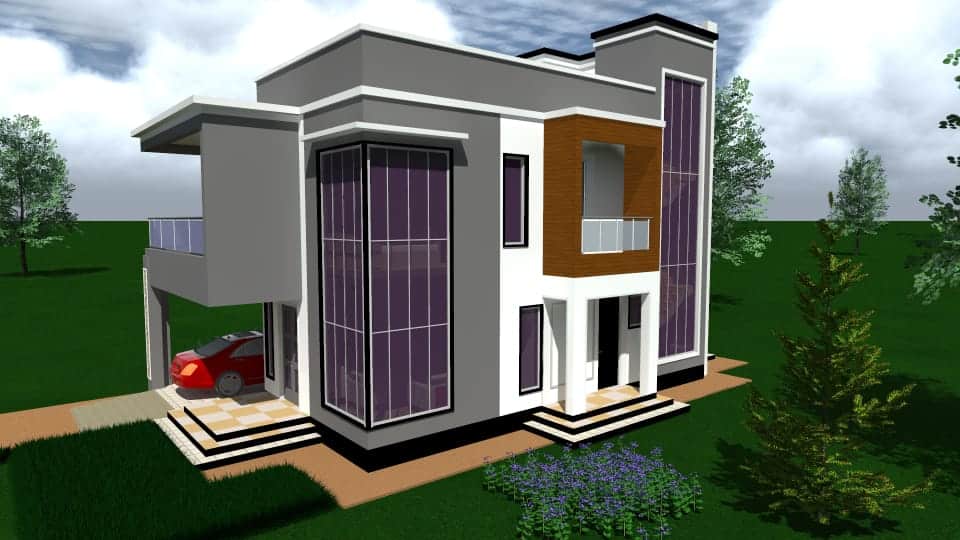
Furnished vs Unfurnished — Which Delivers Better Returns?
Comparative yields based on 2024–2025 data
Recent data shows serviced and well-furnished units often command a premium yield over unfurnished ones.
Typical ranges in 2024–2025: unfurnished ~5–7%, furnished ~6–9%, serviced 8–10% depending on location and management.
Higher yields for furnished units depend on consistent occupancy and controlled operating costs.
Tenant stability and vacancy periods
Unfurnished rentals usually attract longer-term tenants, which reduces turnover and vacancy risk.
Furnished and short-term units see higher turnover, which raises cleaning and management costs but can increase gross income.
Match the model to your risk tolerance: steady cash flow (unfurnished) vs higher but more variable returns (furnished/serviced).
When to choose each model based on investor goals
Choose unfurnished if you want low management effort, long leases, and steady cash flow.
Choose furnished or serviced if you can manage (or outsource) operations and want higher potential ROI and quicker rent resets.
Consider a hybrid strategy — convert part of your portfolio to short-term furnished units and keep others long-term to balance cash flow and upside.
Best Nairobi Neighbourhoods for Furnished Apartment Investment
Westlands — business-friendly and high ROI potential
Westlands remains one of the most profitable areas for furnished apartment investments in Nairobi.
It’s a major business and lifestyle hub that attracts corporate travelers, expatriates, and digital nomads.
The area’s strong infrastructure, proximity to offices, and entertainment spots like Sarit Centre and Westgate Mall keep demand high.
Investors typically earn ROI between 8–10%, with serviced apartments performing even better due to short-term rentals.
Kilimani — balanced between corporate and leisure rentals
Kilimani offers a perfect mix of business accessibility and relaxed urban living.
It’s close to Nairobi’s CBD, Yaya Centre, and major diplomatic offices, attracting both long- and short-term tenants.
Furnished apartments in Kilimani perform well on Airbnb and booking platforms, with yields averaging 7–9%.
Investors also benefit from mid-range development costs and flexible leasing options.
Lavington & Kileleshwa — family and expat demand
These two suburbs are popular with families, embassy workers, and long-stay expatriates.
Their serene environments, spacious compounds, and proximity to international schools drive consistent demand.
Furnished apartments here may not command the highest rent per night, but longer tenancies ensure stable ROI of around 6–8%.
They’re ideal for investors targeting predictable income and minimal management hassle.
Gigiri & Riverside — diplomatic tenants and premium yields
Gigiri and Riverside rank among Nairobi’s most premium zones for serviced apartments in Kenya.
They host embassies, the United Nations complex, and multinational organisations, providing steady rental demand.
Serviced and luxury furnished apartments here attract diplomatic tenants willing to pay premium rents for quality and security.
ROI can reach up to 10–11%, with minimal vacancy and stable long-term contracts.

Furnished Apartment ROI Trends & Projections for 2025–2026
Expected yield ranges and occupancy forecasts
Furnished and serviced apartments in Nairobi are expected to maintain strong returns through 2025 and 2026.
Average yields are projected to stay between 7–10%, with serviced units performing at the higher end.
Occupancy rates should remain stable as corporate travel, NGO activity, and digital nomad visits continue to grow.
Short-term rentals may see slight seasonal dips, but overall demand remains healthy.
Major infrastructure upgrades continue to strengthen the furnished apartment market.
The Expressway, improved rail systems, and airport expansions make movement easier for tourists and business travelers.
These improvements increase demand for high-quality furnished apartments near transport corridors.
Better connectivity also boosts property values, helping long-term ROI.
How macroeconomics and tourism recovery will shape ROI
Macroeconomic stability and steady tourism rebound play a big role in ROI.
As Kenya improves its global business reputation, more investors, expats, and tourists are choosing Nairobi for long or short stays.
A recovering tourism sector supports short-term rental profitability, especially on Airbnb.
Stable economic growth also increases corporate housing budgets, lifting occupancy rates.
How to Maximise ROI in Nairobi’s Furnished Apartment Market
Invest in smart, durable furnishings
High-quality, durable furniture reduces wear-and-tear costs and attracts better-paying tenants.
Opt for pieces that are stylish but strong enough to handle frequent turnover.
Smart upgrades like energy-saving appliances and good lighting also improve guest satisfaction.
Good interior design often leads to higher ratings and faster bookings.
Use professional photography, digital marketing, and Airbnb optimisation
Professional photos and compelling descriptions help your listing stand out online.
Using social media, Google listings, and Airbnb optimisation boosts visibility and booking rates.
Responsive communication and updated calendars also raise your ranking on booking platforms.
Strong marketing directly increases occupancy and improves overall ROI.
Maintain high guest ratings through service quality
Great service turns one-time guests into repeat clients.
Clean spaces, fast check-ins, and polite communication consistently lead to higher star ratings.
Better ratings mean more visibility on booking platforms and higher pricing power.
Good management builds long-term profitability for furnished apartments in Nairobi.
Consider hybrid leasing — short- and long-term mix
Combining long-term tenants with short-term guests helps stabilise income.
Long-term stays reduce vacancy risks, while short-term rentals boost overall yield during peak seasons.
This hybrid model works especially well in areas like Kilimani, Kileleshwa, and Lavington.
It also helps investors manage market changes without losing cash flow.
Investment Outlook — Is 2025 the Right Time to Buy?
Summary of trends favouring entry in 2025
The 2025 property cycle in Nairobi looks promising for furnished apartment investors.
Strong demand from corporates, expats, and tourists keeps occupancy rates high.
Infrastructure projects and improving tourism are also boosting property values and short-stay bookings.
With yields stabilising between 7–10%, 2025 presents a strategic window for investors to enter or expand their portfolios.
What new investors should expect in returns
New investors can expect competitive rental yields and manageable entry costs.
Returns largely depend on location, furnishing quality, and management efficiency.
Serviced apartments in prime zones like Westlands and Kilimani can yield up to 10%, while mid-tier suburbs average around 7–8%.
Those using short-term or hybrid leasing models may enjoy even higher annual ROI when managed professionally.
Long-term capital appreciation potential
Beyond annual rent income, furnished apartments in Nairobi offer solid long-term appreciation.
As Nairobi continues to grow as a regional business hub, land and property values are projected to rise steadily.
Strategic locations near transport links and commercial centers will see the highest appreciation over the next 3–5 years.
This combination of rental yield and capital gain makes 2025 an attractive entry point for serious investors.
Conclusion
The ROI of furnished apartments in Nairobi remains one of the strongest in Kenya’s real estate sector.
With yields averaging 7–10% and steady tenant demand, 2025 offers excellent potential for both seasoned and new investors.
However, success depends on factors like location, management quality, and compliance with taxes and regulations.
Evaluate total costs, expected yield, and risk before committing capital.
Call to Action: Get a verified ROI analysis or property quote for your preferred Nairobi neighbourhood today.